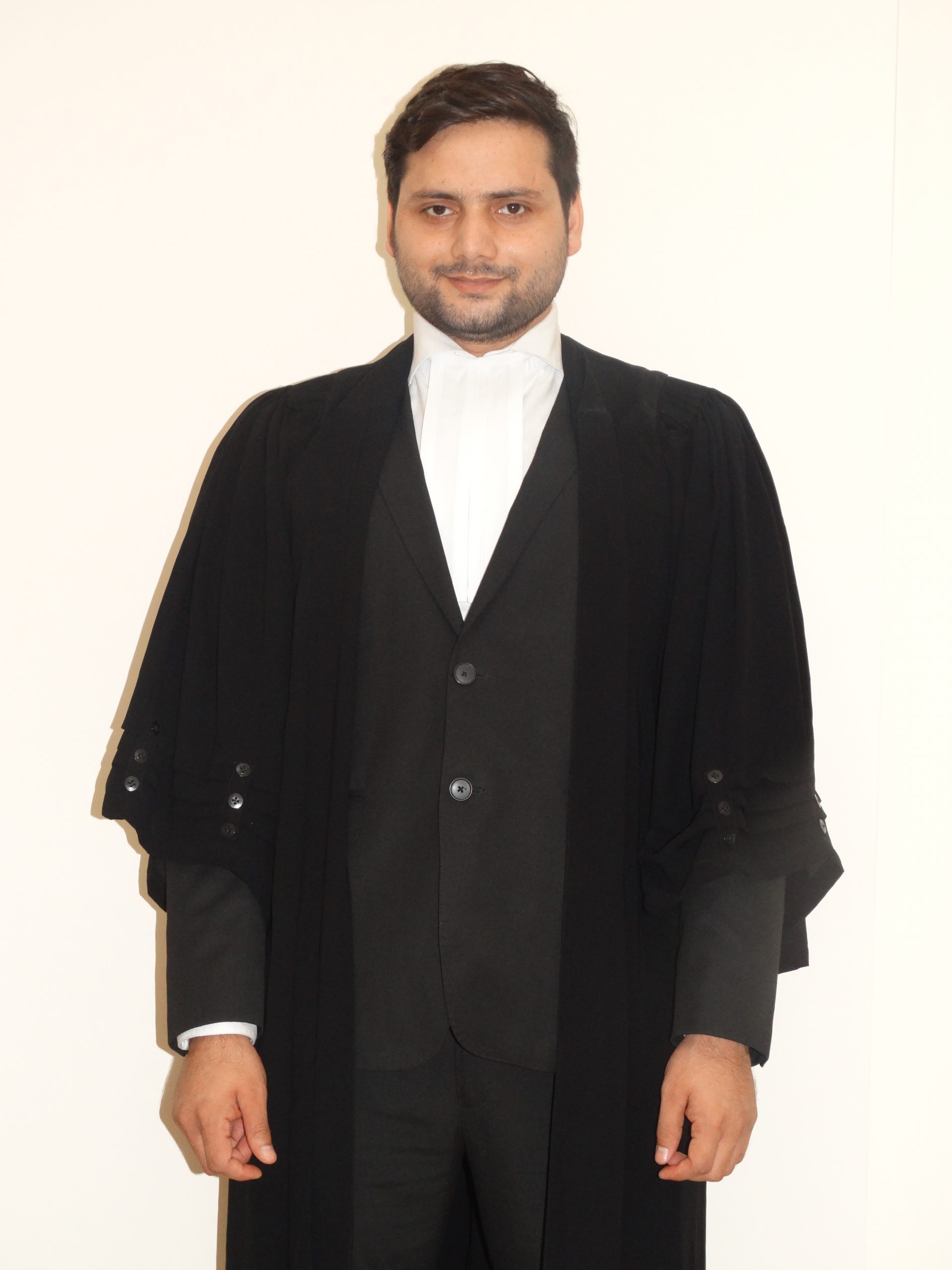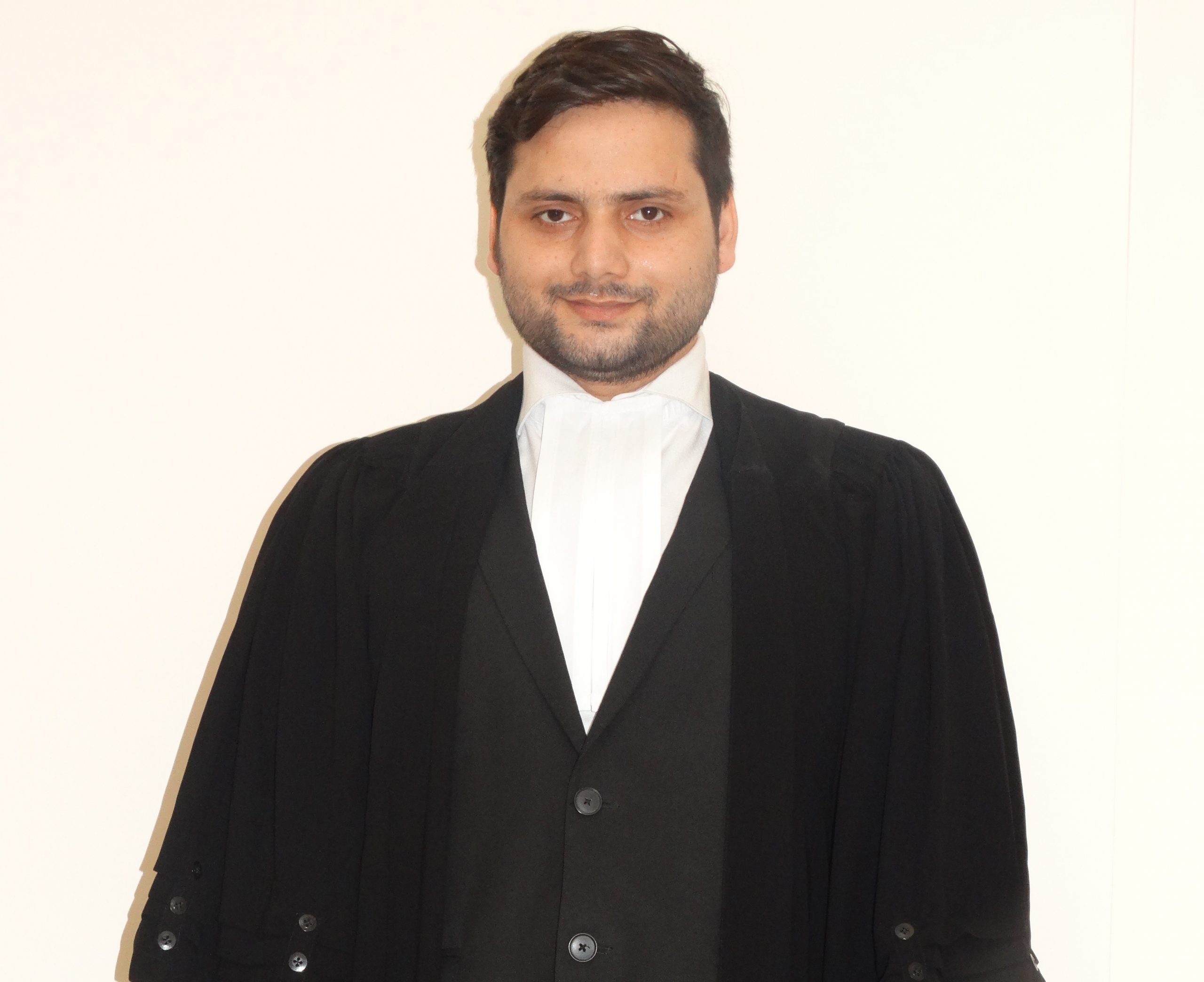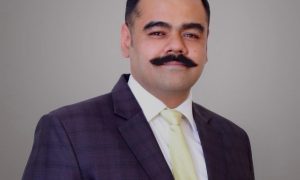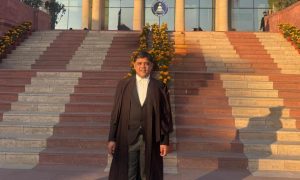This Interview has been published by Pragya Chandni and and The SuperLawyer Team

Sir, could you please share with us what inspired you to pursue a career in law, and how did your journey into legal practice unfold, especially in economic offenses and commercial dispute litigation?
I hail from a small village in Bihar and hence my dreams were also moderate. Engineering and UPSC are the most popular options in Bihar as many of the locals perform well in these exams. I was too striving to become an Engineer, however the turning point for me was when I visited my uncle in Delhi who practices as a lawyer in the Supreme Court of India as an AOR. I was enchanted by his work on complex legal issues which created lasting imprints on my pristine mind. My Uncle also advised me to opt for a career in the field of law and with his guidance I took my leap into this exciting world of legalese.
Being garrulous by nature it seemed like a fish finding its natural waters and felt comforted by the mentor from my family who could always guide me past all obstacles that I may encounter charting this unfamiliar terrain. I was charmed by the interaction with a few senior advocates and their view on contemporary issues from the legal point of view which was on a much higher pedestal than many other professions and also afforded me the visibility which was missing in other professions.
The rest of the things then fell into place with single-minded dedication and persistence in clearing the CLAT examination and opted for the curriculum at NIRMA University, Ahmedabad, where the set-up was quite rewarding in terms of the constant encouragement by the Professors and a competitive batch of students who would challenge me to excel and hone my skills.
Economic offences and commercial litigation seem to be the growing albeit nascent field of litigation and have become a natural choice for any newcomer who seeks to grow at an accelerated pace.
Your focus area involves economic offenses, including matters related to the Prevention of Money Laundering Act, Prohibition of Benami Property Transactions Act, and more. What drew you to specialize in this particular field, and what challenges do you find most intriguing in handling such cases?
With the opening of the Indian Economy and integration with the world economic systems, the intricacy of financial matters has acquired greater complexities, and it is important to delve into the nuances of trade and ensure compliance with the rules and regulations of the countries where they impact. Digitisation and internet connectivity have eased vigilance and tracking and often people get trapped into the web of deceit/conundrum of litigation which vexes the common man and in order to aid and assist them a legal professional is well suited to advice and counsel business professionals to safeguard their interest.
Increasingly the burden in litigation is being shifted onto the defendants and well-trained legal minds come to their rescue. Economic offences are the sunrise sector of litigation and hence attract young minds like a bee to the flower for its nectar.
You’ve transitioned from being associated with law firms to establish your independent practice. Could you tell us about the pivotal moments that led to this decision, and how has the experience been as an independent legal practitioner?
One of the special privileges of our profession is that it allows you to sail in two boats and so a person can be associated with a reputed firm and side by side nurture an independent practice of his own to find his ground in due course. I have always chosen to associate with firms that have no restrictive working conditions to hamper my independent practice. In this process, I have lost vital aspects of stability and study earnings with a top-tier law firm, but the confidence gained while straddling two boats has been a fair bargain in my assessment. It is akin to being a co-pilot who after filing in the requisite hours of flying is qualified to occupy the chair of the commander of his own craft.
Nothing is gained without experiencing its share of struggle and the initial formative years shape our destinies. Every young professional is like a diamond which must undergo its share of being cut and shaped by circumstances and chiselled by the artisans who mould them, and I count myself lucky that I got picked by the sharp intellects who are luminaries in their own right and illumine the path for me. I also feel redeemed and gratified when I do pro-bono matters which satisfy not only the mind but also the heart which makes this profession endearing and noble.
Your professional journey includes representing clients before various courts and tribunals on diverse matters. Can you share an experience of handling a particularly challenging or high-profile case and the lessons you learned from it?
With God’s grace and the blessings of my mentors, I have had multiple opportunities to assist in several high-profile matters. It is my belief that every matter imparts a new learning and everything that augments my knowledge is to be counted as high profile as it has uplifted me from the lower echelons to the next level.
I take pride in all the matters that are assigned to me and am committed to giving it my best regardless of the outcome. The end result may not always be to our expectation, since the judges have a mind of their own, but our conscience should not bite us for having left any stone unturned. One hallmark of professional integrity which I strive for is to put the best foot forward with persistence and care. The sporting spirit is my guiding principle that even the best of players/champions encounter defeat in some games, but it never weakens their spirit or resolve.
Having excelled academically during your time at Nirma University, how do you balance the theoretical knowledge gained in law school with the practical challenges faced in the legal profession?
Once you get on the field there is no substitute for experience. Once again, the sports analogy will help understand this – no amount of theoretical knowledge about the intricacies of the sport, the past statistics, the precedents etc can anticipate the uncertainties of playing conditions. The theory brings about awareness and is like a rough diamond, but it is only experience and constant practice that shapes our minds, characters and destinies. Needless to emphasise excelling in academics opens several vistas and avenues for anyone to choose the path for individual glory.
And in this profession, constant updation is the sine qua non for any practicing advocate just like you have new software versions which regularly and periodically update and upgrade your knowledge and provide you with the edge which is the single differentiator of any successful professional. The need to burn the midnight oil is greater in practice than ever in academia. This is also what Steven Covey enlisted as the Seventh Habit in ‘Sharpening the Saw’.
You’ve had the opportunity to learn from some of the best advocates, including senior advocates and government counsels. How has mentorship played a role in shaping your career, and what advice would you give to aspiring lawyers on finding the right mentors?
That the greatest learning in the profession has been that no work is small or unimportant and what is done by one’s own hand shall stay with one for life. It is similar to swimming which once learnt is never unlearnt. Mentors and guides are the lighthouses that safely guide the ships in the vast ocean of life. The role of mentors can never be undermined, and I always look up to them when faced with a quandary. Senior advocates help us understand as to how arguments have to be framed and articulated in any hearing and to steer the course in the direction which shall eventually help the judge decide in our favour. We can learn to craft strategies from the seniors who bring their wealth of experience and maturity and fuse with our exuberance to present our side with vigour and vitality. In all of this it is essential that the facts are garnered from the files and discussions that are compiled and then neatly sifted into a summary which can be helpful in framing the briefs for senior counsels who need to be provided the critical points for their arguments.
Given your extensive experience, could you share your perspective on the current legal landscape in India, especially in areas such as economic offenses, commercial dispute litigation, and the impact of recent legal developments?
The legal domain is fraught with extensive work opportunities and provides an excellent launching pad for assuming leadership roles in society. Technology is quickly upgrading the systems and making it easy to adjudicate matters without logistical constraints. It is therefore necessary to be tech-savvy so that one can stay ahead in matters which are bearing global footprints and have far-reaching ramifications.
What prompted you to write the AOR examination and what do you suggest to any candidate who will appear for these examinations.
For every advocate, it is a dream to work at the pinnacle which is the august body of the Supreme Court, and it was not possible to stay away from this venerable temple of justice. I would appear immodest if I were to claim that this was my goal, but the fact is that one needs to take this exam with great dedication and commitment and at a young age one is required to be enthralled with energy to conquer this peak amongst the many that we set our minds to scale.
Lastly, considering your achievements and the knowledge you’ve gained along the way, what advice would you like to offer to fresh law graduates who are embarking on their legal careers today?
I always draw inspiration from the Mahabharata which asserts and exhorts us to – Stay focused on the eye of the fish only and nature shall conspire to let your wishes come true.
Get in touch with Prabhat Kumar Rai-


























